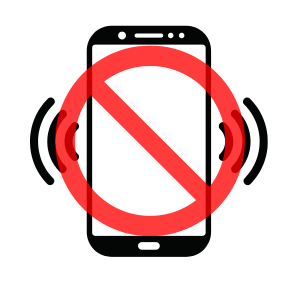Key Takeaways:
- Having a set schedule and routine before bedtime is an ideal way to train your body and brain to know when it is time to relax and get ready to fall asleep.
- Some bedtime routines can include meditating, reading, avoiding social media, and many more.
- While each individual’s routine can include different wind-down activities, the most important thing is to have one in place to get optimal and restful sleep.
Having a bedtime routine every night helps create habits that let your brain and your body know that it is time to wind down and get ready for bed and fall asleep. Nighttime routines can vary among individuals and could include reading a book, meditating, turning off your electronic devices, and more.

What Is A Bedtime Routine For Good Sleep?
A bedtime routine helps you keep a consistent schedule for healthier sleep. By going to bed at roughly the same time every night and by performing the same activities before bedtime every night, you are maintaining a bedtime routine. Bedtime routines help prepare your body and mind for sleep through conditioning. Erratic sleeping schedules can lead to sleep disorders and eventually health-related issues, so a bedtime routine is as important as diet and exercise for your well-being.
Why Is A Bedtime Sleep Routine Important?
When we think of bedtime routines we may think they apply mostly to children. But a bedtime routine is just as essential for adults. When adults of any age maintain a bedtime routine, they can maintain healthy sleep. Healthy sleep helps contribute to overall health including cardiovascular health. Healthy sleep through a bedtime routine also promotes mental health. Erratic sleep patterns can lead to daytime drowsiness due to sleep loss, poor memory, and concentration, which can affect work and life. Poor sleep can also lead to mental health issues such as anxiety or depression. So, a bedtime routine helps keep your mind and body in the best shape as an adult.
How Can Bedtime Routines Help You Sleep Better?
Like any routine, having one for bedtime helps make you and your body aware of what’s to come. When following a routine and the same steps every night, your brain adjusts to learning that the steps you take are preparing you for sleep. Having a routine not only calms the mind but also reduces any late-night feelings of stress or anxiety, allowing you to fall asleep quickly and more easily.
What Is The Best Bedtime Routine For Good Sleep For Adults?
 Set A Specific Bedtime
Set A Specific Bedtime
Keeping a consistent bedtime helps your body and mind prepare for sleep every night. Try to establish a set time and stick to it. You may even find yourself getting sleepy as your set bedtime nears. It does not matter if you prefer to go to bed early or like to stay up late. As long as you maintain that sleep schedule every night, you can assist your body and mind to get ready for sleep.
Turn Your Electronic Devices Off
You may be tempted at bedtime to engage with your phone or computer or other devices, but this activity stimulates the mind and can affect healthy sleep. Blue light from these devices can trick the mind into thinking it is daytime, which arouses wakefulness instead of sleep. Set a time before you go to bed when you shut off your electronic devices. Stay away from your phone, computer, tablet, and even the TV if you can.
 Listen to Calm and Relaxing Music
Listen to Calm and Relaxing Music
One way to prepare your mind for sleep every night is to set aside some time to listen to calming or relaxing music. As part of your bedtime routine, music can help lull you into a sleepy state. Be sure to listen to your sleep track before entering the bedroom. It is best not to conduct any activities in bed before sleep. Try to listen to your relaxing music track in another room for some time and then retire to the bedroom to sleep.
 Eat Light Meals
Eat Light Meals
Dinnertime can affect your sleep. Try not to eat anything several hours before bedtime as part of your routine. Food needs to be digested and the digestive process can keep you awake. Also, try to avoid heavy meals for your dinner. Consume all your calories at breakfast and lunch and select a lighter meal for dinner. This habit can reduce the digestive process by having less in your stomach at bedtime and allow for a more peaceful sleep.
 Write Down Your Thoughts in Journal
Write Down Your Thoughts in Journal
One of the most useful pre-bedtime activities is writing in a journal. Journaling can help you organize your thoughts before bedtime. Often people will go to bed and experience racing thoughts or think about events that happened during the day, which can keep them up. Journaling helps vent those urgent thoughts. By getting them down on the page before bed, you are more likely to drift off to sleep and stay asleep with your mind at peace.
 Create a To-Do List
Create a To-Do List
While journaling can help you address the day’s events, a to-do list can help you prepare for the next day. Often our busy lives can lead to anticipation of tomorrow’s activities. These racing thoughts can keep us awake and may leave us too tired to complete those activities the next day. Writing down a to-do list before bed helps us prepare and organize the events that are coming up so we do not dwell on them while trying to sleep.
 Take A Cold Shower to Destress
Take A Cold Shower to Destress
While a cold shower may sound like a shock to the system before bedtime, it actually has the opposite effect. A cold shower helps eliminate stress and reduce feelings of anxiety. If you have had a stressful day, that stress can carry over into bedtime and keep you awake with racing thoughts and worries. A cold shower breaks that stress and alleviates those urgent emotions. Climbing into a warm bed becomes a comfortable and inviting experience that promotes sleep.
 Lower the Lights to Create a Soothing Atmosphere
Lower the Lights to Create a Soothing Atmosphere
Reducing the amount of light in your bedroom helps induce sleep. Even a nightlight, while helpful can create glare that keeps you awake. Just like the blue light of electronic devices, artificial light stimulates the mind into thinking it is daytime and time to wake up. Try to sleep in a room that is close to completely dark if you can. If you use a nightlight, try to place it so that it is very dim and does not shine a light on you while you are trying to go to sleep.
 Practice Meditation
Practice Meditation
One of the proven ways to relax the mind is through meditation. Meditation, especially before bedtime, can help eliminate racing thoughts or anxious feelings that can keep you awake. Meditative practices help relax the body as well, which promotes relaxed sleep. Meditation is easy to learn and can be practiced without much training. There are many different ways to meditate, and you can explore some that take little time and can be an important part of your bedtime routine.
 Relax with A Yoga Session
Relax with A Yoga Session
Another meditative practice that helps relax the mind and body is yoga. Yoga practices before bedtime help destress the muscles that may be taut from a day’s activities. There are many specific yoga routines designed specifically for healthy sleep. The practice also focuses on the mind much like meditation to get past anxious emotions or stressful thoughts that can lead to disrupted sleep. A yoga session before bedtime prepares your mind and body for a restful sleep without exerting you physically.
 Use Oils or Aromatherapy to Relax
Use Oils or Aromatherapy to Relax
The sense of smell plays an important role in healthy sleep. Disruptive, unpleasant, or harsh odors in the bedroom or odors that you experience before going to bed can keep you up. Use oils in aromatherapy that actually calm the mind. Scents like lavender are known to help soothe and relax. Fill your bedroom with these fragrances to help create a relaxing atmosphere before bedtime, so your mind and body are ready for peaceful sleep.
 Prepare Your Bedroom
Prepare Your Bedroom
One of the most important aspects of maintaining a bedtime routine is that you should conduct most of your routine outside of the bedroom. Limit reading, watching TV, or eating in your bedroom. Make your bedroom the sole place to sleep. As part of your bedtime routine, turn down your bed covers, plump your pillows, and dim the lights to create an inviting atmosphere for restful sleep. Even as you perform other pre-bedtime activities such as meditation in other places in the home, your prepared bedroom is waiting for you to lie down and sleep.
What is The Ideal Time to Start a Bedtime Routine?
Your bedtime routine depends on when you decide you would like to go to sleep. You should start your bedtime routine roughly two to three hours before you decide on bedtime. But more time can be used preparing for sleep if needed. You can even establish a schedule that helps you stay on track. For example, if you go to bed at 10 pm you can follow this schedule.
- Eat a light meal for dinner between 6 pm and 8 pm. Try to avoid snacking after 8 pm.
- Conduct a meditation or yoga session for about an hour, around 8 pm to 9 pm.
- Turn off electronic devices around 9 pm.
- Complete your journaling or to-do list from 9 pm to 9:30 pm.
- Prepare your bedroom and take a cold shower if you have a stressful day.
Does Your Sleep Hygiene Bedtime Routine Affect Your Chances Of Developing Sleep Apnea?
While a bedtime routine is helpful for good sleep and can help with sleep apnea, it cannot prevent it. If you have sleep apnea, you may have to include CPAP therapy as part of your bedtime routine. Staying CPAP compliant along with a healthy sleep schedule can help reduce the instances of apneas throughout the night, so you sleep better.
Sleep apnea however is probably not the result of a poor sleep schedule. You need to follow the recommendations from a doctor to curb the symptoms and improve sleep. Only a doctor can help you determine the severity of your sleep apnea and provide proper treatment.
Where Can I Get Diagnosed for Sleep Apnea?
If you suspect that you have sleep apnea, the first step is to get an accurate diagnosis. You can do that through a home sleep apnea test from Sleep Care Online. Here is how it works:
- With the Complete Care Package, schedule a 10-minute telehealth visit with a healthcare provider to discuss symptoms, upcoming sleep study, test results, and discuss treatment options.
- A multi-night, disposable home sleep apnea test is mailed to your home to be completed at your convenience.
- A physician analyzes the sleep data and provides a prescription if needed.
- Schedule an optional follow-up appointment (additional fee applies).
- We connect you to sleep experts who can offer customized sleep therapy options, assistance in equipment purchase, and initial set-up.

Dr. Kunal Agarwal is a highly accomplished board-certified physician specializing in Family Medicine, Sleep Medicine, and Obesity Medicine. He completed his residency at Michigan State University and a fellowship at Henry Ford Health System, and has over a decade of experience delivering exceptional patient outcomes. Dr. Argarwal is passionate about patient education and advocacy, sleep disorders, and more. His expertise in treating sleep apnea is extremely valuable to improve his patients’ lives.
Awards, Honors, & Recognition
Top Doctor
SRQ Magazine and Sarasota Magazine, 2023-2024
Fellow of American Academy of Sleep Medicine (FAASM)
American Academy of Sleep Medicine, 2021
Named “Top Doctor” for 2017, 2018 (on cover), 2019,and 2020 by Delaware Today Magazine
2017-2020













